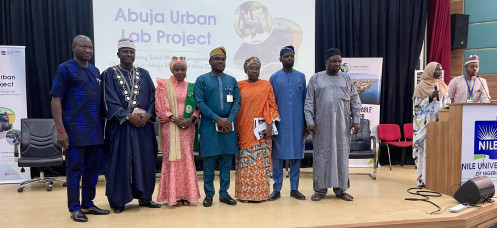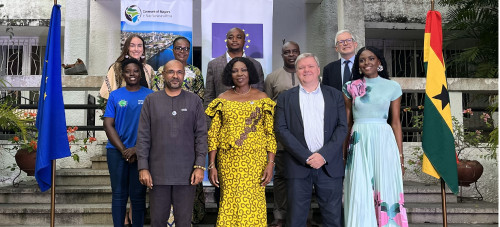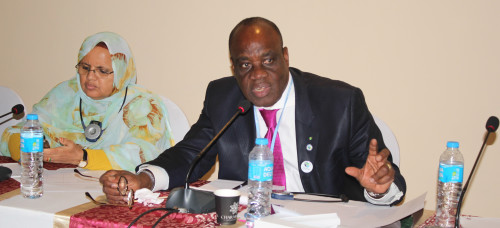Championing the mainstreaming of climate change considerations
Published: 26 Aug 2020

Nakuru County, in cooperation with CoM SSA, is moving forward in its response to climate change by mainstreaming it in local sectors to address cross-cutting aspects of climate change mitigation, adaptation, and energy access.
The Environment, Energy and Natural Resources Ministry of the County Government of Nakuru oversees matters of climate change and energy. However, the leadership of the county has recognised that climate change is an issue that spills beyond the confines of the environment department and has an impact on all sectors and departments, who must play an active role in building resilience and contribute to low emissions development.
In addressing this, the County recently appointed Climate Change Champions in all its Ministries; who are responsible for bringing climate change considerations to their fields of practice. Building on Nakuru County’s commitment to address climate change holistically, 20 climate change champions from seven departments participated in a training organised by the Covenant of Mayors in Sub-Saharan Africa (CoM SSA) initiative. The training was delivered virtually by CoM SSA partner GIZ with support from ICLEI Africa and covered how to mainstream climate change considerations across county departments.

Mr. Kiogora Murithi, Chief Officer of the Environment, Energy and Natural Resources department, opened the workshop highlighting Nakuru’s initiatives on matters of energy and climate – notably, that Honourable Governor Lee Kinyanjui committed 1% of the county’s budget to combat climate change across departments. This training is part of the process of developing the county’s Sustainable Energy Access and Climate Action Plan (SEACAP), which indeed covers all sectors and will help the county put this climate leadership to local action.
The participants were introduced to the concepts of climate change, the three pillars of the SEACAP, and its relevance to different sectors by facilitators from ICLEI Africa and GIZ. Mr. David Adegu from the Kenya Meteorological Department, Ministry of Environment & Forestry, brought insights from the national level on climate mainstreaming and how these can be applied at county level. He explained the four key steps of climate mainstreaming and provided examples of actions that county departments could take in their sectors considering the Kenyan Government’s Big 4 Agenda as well as the County’s Integrated Development Plan (CIPD).
How can climate change considerations be mainstreamed across sectors?
Following the introduction to climate change and how to mainstream its considerations, participants were led to break-away groups according to their various departments where they discussed the practicalities of mainstreaming in their sectors and thereby bringing in their practical experiences.
Climate Change Champions decided on actions they would take back to their departments following the training. For example, the Ministry of Agriculture in the county reported that they will engage partners working on water harvesting to enhance production in areas that will be impacted by increasing droughts.
The climate is changing, and it is changing every sector: from tourism to health services, from agriculture to transport and social services. The Nakuru County has made progress with the mainstreaming of climate considerations through, amongst other things, the development of a climate change policy and appointment of climate change champions. The county is now ready to take the next steps in the mainstreaming of climate change; that is prioritising and implementing projects with climate change responses. The County ’s commitment to the development of a detailed SEACAP as part of CoM SSA will enable it to address the cross-cutting aspects of climate change mitigation, adaptation, and energy access.
CoM SSA, an initiative co-funded by the European Union, BMZ, and AECID, has a strong network of over 200 cities in Sub-Saharan Africa that will continue to engage with sub-national administrations such as Nakuru county through these challenging times of the COVID- 19 pandemic, while adapting to the new normal.






